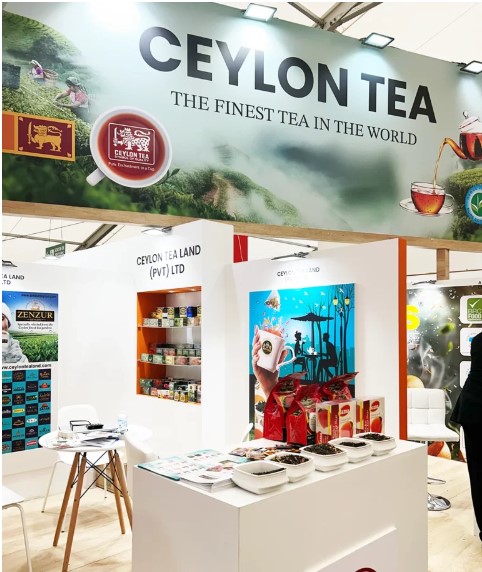Ceylon Tea is well known globally for its high-quality, high-value products. For about 150 years Sri Lanka – the tear-drop-shaped island at the southern tip of India – has built a reputation for its tea. The industry now supports the livelihoods of almost two million people, about 10% of the population, directly and indirectly. The Sri Lanka Tea Board is presenting it’s quality products at SIAL Paris 2024.
Sri Lanka’s tea industry generates export revenue of US$1.5 billion (approximately €13.8 billion) per annum and is vital to the economic, social, and political stability of the country. The competitive advantage of Ceylon Tea rests on several key attributes.
Hand-picked
Ceylon teas are hand-picked to ensure a good selection of green leaves for the manufacture of a higher-quality tea. This is an expensive and labour-intensive process but it positively influences the final product quality.
Artisanal
Sri Lanka is a stronghold of the original ‘orthodox’ tea manufacturing process which focuses on preserving the natural flavours and characteristics of the tea leaves. This results in small batch production of a wide variety of leaf styles or grades while retaining the best flavour.
Ethical
The Ceylon tea industry is well regulated with a unionised workforce that is governed by a collective labour agreement. Child labour is banned and workers are provided with a comprehensive selection of facilities from housing to healthcare.
Passion
Growing and producing Ceylon tea is a tradition – but also a passion that has existed for more than a century. Each day about 1.5 million people all over Sri Lanka – from tea pluckers to tea producers and tea tasters to tea packers – commit themselves to producing some of the finest black teas on the earth. It is a way of life.
Provenance
Ceylon Tea estates are nestled in pristine environments and tend to be small in size; roughly 200-400 hectares. They are run by professional, experienced managers and supported by a dedicated workforce living on the estate.
Ecological
Sri Lanka has implemented various measures to comply with environment-related international conventions and agreements, including the Montreal Protocol. For example, the use of methyl bromide as a soil fumigant in the tea sector was halted to comply with the protocol. The chemical is one among several that depletes the Earth’s ozone layer.
Freshness
Teas are packaged in Sri Lanka within 2-3 weeks from harvesting, thereby preserving the freshness and inherent aroma. This is in contrast to teas packed in some other markets which can be many months old, at times even over a year when packaged.
Diversity
Sri Lanka has seven agro-climatic tea regions. They are Nuwara Eliya, Uva, Uda Pussellawa, Dimbula, Kandy, Sabaragamuwa, and Ruhuna. Each one has the benefit of producing teas of different flavours, aromas, strengths, and colours unmatched by any other origin in the world.
All of the above are captured in the Lion Logo trademark for Ceylon Tea, encapsulating the legacy and essence of tea grown in Sri Lanka. Inspired by its rich heritage, the Lion Logo symbol guarantees that it is 100% pure Ceylon Tea and grown, plucked, and packed exclusively in Sri Lanka. It also conforms to the highest quality standards mandated by the Sri Lanka Tea Board. Every batch of tea that bears the Ceylon Tea Lion Logo is traceable to its origins, ensuring absolute accountability and transparency with every sip.
Sri Lanka’s tea industry follows stringent quality assurance measures in compliance with MRLs (maximum residue levels) set by different countries and regions for the agrochemicals used in tea plantations. The industry also complies with other international standards such as ISO, Good Agricultural Practices, HACCP, Good Manufacturing Practices, Rainforest Alliance, and Fair Trade, among others.
Hall 5C / Stand G278

